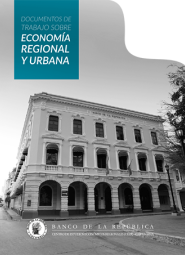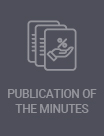The Board of Directors of Banco de la República increased the benchmark interest rate by 25 basis points
The Board of Directors of Banco de la República at today’s meeting decided to increase the benchmark interest rate by 25 bp to 5.75%. For this decision, the Board mainly took into account the following aspects:
- In November, annual consumer inflation was 6.39%, surpassing the forecast of the technical staff at the Central Bank and of the market. The average of the four measures of core inflation stood at 5.4%, and measures of inflation expectations remain high: those by analysts to one and two years increased to 4.6% and 3.8%, respectively; those inferred from public debt bonds to 2, 3 and 5 years do not show significant changes and remain above 4.5%.
- Acceleration of inflation so far this year is mainly explained by the pass-through of nominal depreciation of the peso to consumer prices and to the costs of imported raw materials, as well as by the lower dynamics in food supply.
- The pass-through of part of the devaluation of the peso to consumer prices and a strong presence of El Niño have slowed down convergence of inflation to the target due to its direct impact on prices and inflation expectations, as well as to the probable triggering of indexation mechanisms.
- Economic growth recorded for the third quarter of 2015 was higher than projected. Regarding the second quarter, the rate of increase in consumption was higher, while investment registered a similar rate. Net exports subtracted from growth. With this information and activity data for the fourth quarter, the technical staff forecasts a growth figure close to 3.0% for all of 2015.
- Figures for global economic activity continue to reflect a weak dynamics of external demand, below that recorded for 2014. In the United States, domestic demand grows at favorable rates, while in the euro zone it is recovering slowly. In China, the information available suggests that its economy would have ceased to slow down. The major economies in Latin America recorded low growths or contractions in their output.
- The Federal Reserve of the United States increased the benchmark interest rate and is likely to continue doing so gradually. The price of oil continued to decline and stood at levels lower than had been estimated for the end of the year. This drop represents a further deterioration of the country's terms of trade, national income, and deficit in the current account of the balance of payments. In this environment, and with the beginning of a gradual tightening of the monetary policy in the United States, the country's risk premium increased and the peso continued to depreciate vis-à-vis the US dollar.
In synthesis, higher-than-expected increases in food prices and further increases in the exchange rate related largely to the fall in the price of oil generate new inflationary pressures. At the same time, inflation expectations remain high and the risk of a slowdown in domestic demand, beyond that which is consistent with the decline exhibited in national income, has moderated. In order to ensure convergence of inflation towards the target range within the horizon announced last month, the Board of Directors decided to continue tightening the monetary policy, as it started doing in September, and increased the benchmark interest rate by 25 bp.
The Board reiterates its commitment to the inflation target and continues to carefully monitor the behavior and projections of economic activity and inflation in the country, as well as that of asset markets and the international situation.
Bogotá





















































